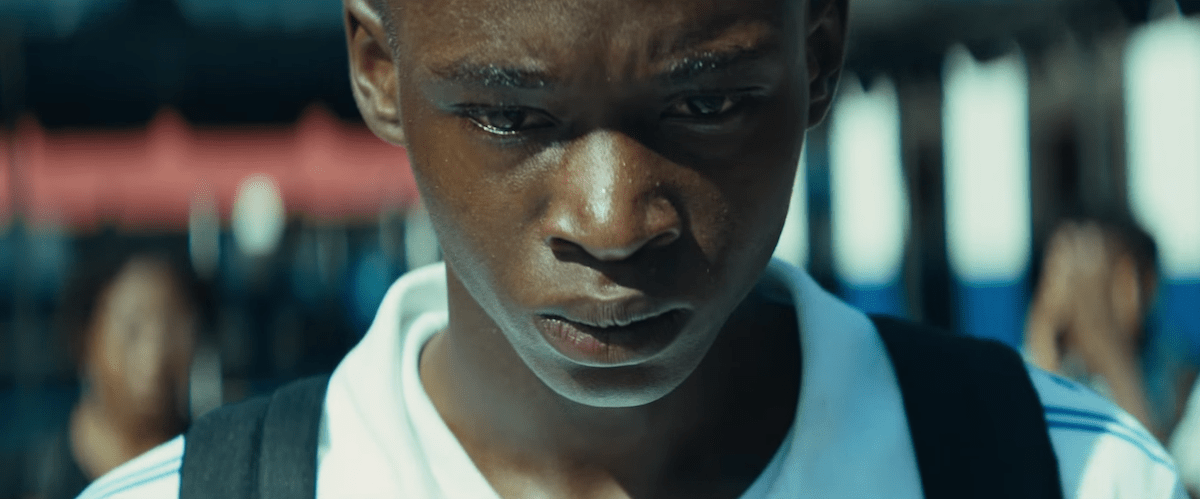February 2016: Academy President Cheryl Boone Isaacs takes the stage to announce the 88th Academy Award nominees. Of the actors nominated, not one is a person of color. For the second year in a row, black actors had been snubbed. It was an event that triggered the #OscarSoWhite movement which saw Spike Lee and Ava DuVernay, along with Michael Moore and Will Smith, announcing they would not be attending the ceremony, and droves turning to Twitter to express their outrage.
This year, it’s a very different story. While the all-singing-all-dancing homage to Tinsel Town La La Land leads the way in the awards race, three films about black identity are also in for top prizes: Hidden Figures, Fences, and Moonlight — the second feature film from Miami born director Barry Jenkins.
Since Moonlight played at the Telluride Film Festival last year, it has gone from success to success. To date, it’s earned eight Oscar nominations, five Golden Globe nominations, plus the prize for Best Motion Picture Drama, and was up for four BAFTAs, although it didn’t win any. The success of the film highlights what a difference a year makes, even though the movie went into production long before the #OscarsSoWhite movement. It has gained mainstream appeal as an insightful, heartfelt look at the black experience today, from a team that includes a black director, a screenplay written by two black men — one gay (playwright Tarell Alvin McCraney), one straight (Jenkins) — born in Miami, and with a nearly entirely black cast.
Jenkins focuses on the journey of a young black boy, Little, growing up in a housing project in Miami. Shown at three different stages of his life, he’s played by three different actors, Alex Herbert, Ashton Sanders, and Trevante Rhodes. Little contends daily with bullies, a heroin-addict mother (Naomie Harris), and his growing awareness that he is gay.
Jenkins, a man who exudes friendliness and style, knows that the issues his film tackles are ones that his audience will have rarely seen before on the big screen. It began three years ago, talking with two guys from the Borscht Film Collective, an outfit that looks to filmmakers to tell stories about all shades of life in Miami. “They read Tarell’s play In the Moonlight Black Boys Look Blue, and they knew both of us. There are things about both mine and Tarell’s biography that are very distinct about how we grew up. They came to me, and the line was, ‘this isn’t about you, but it’s about you.'” Jenkins was taken with the story, and it went from there.
Read: An interview with Ashton Sanders, one of Moonlight’s leading lights.
Jenkins doesn’t want audiences to think that he is trying to define black male identity. His focus was on providing a realistic representation of a life, at least in part, that he knew well. “We don’t see characters like this that often,” Jenkins explains. His aim was to offer up a representation of the black community that doesn’t have to rely on stereotypes. For Jenkins, it is about showing audiences a slice of life that, odds would suggest, they haven’t seen before. Try to name a TV show or film that has depicted anything like an authentic representation of black gay identity before. The list is very short, with the most likely contenders being Michael K. Williams’s character Omar Little on HBO’s The Wire and the film Noah’s Arc. Few have heard of the latter, let alone seen.
Once he read the play, did Jenkins have any concerns about making it for his second feature, even with the support of Brad Pitt’s Plan B? He pauses. “I am a straight black man from Miami with one film (Medicine for Melancholy) behind him that had a budget of $2,000, can this be my second film? Is this a bad career move? It’s a bad career move,” he jokes, breaking out into infectious laughter. He goes on, “I asked a friend what he thought, and he went, ‘you sure you want to do this?’ It wasn’t dangerous, but it is an illogical move, and a bold statement.” Jenkins believes that it was barely a choice in the end, because the play had affected him so profoundly. He explains: “I thought that if I walked away from this piece after it had moved me in such a way it would be cowardly. So, I said ‘Well, fuck it’, and went completely the other way and threw myself into it with my full self.” He doesn’t regret his choice.
We move on to the subject of homosexuality, and he tells an alarming anecdote from the set when they were filming. “We were shooting a scene that takes place very early in the film where the kids are playing a game. It is a game where, when you are poor, you would find a newspaper or anything like that, roll it up into a ball, throw it up in the air and whoever catches it you would tackle that guy. We called it throw-up tackle.” He then throws the sucker punch of the story. “We were shooting that scene and the gaffer, who was this white guy from California goes, ‘Hey man, what do you call this game?’ and I said it was throw-up tackle, and he says, ‘Oh right, where I grew up we called it smear the queer.'” It is a story that reveals the inherent homophobia, not exclusive to, but prevalent in American society.
You can’t help but feel admiration for Jenkins considering that, with just his second movie, he has tackled black identity and homosexuality and done so in a way that hits straight home to the heart. Accolades and prizes are good, but whether Moonlight takes home a gong or not it, he has made a film of real beauty.
Read: Moonlight is a major moment for both African American and LGBT cinema.
Credits
Text Joseph Walsh
